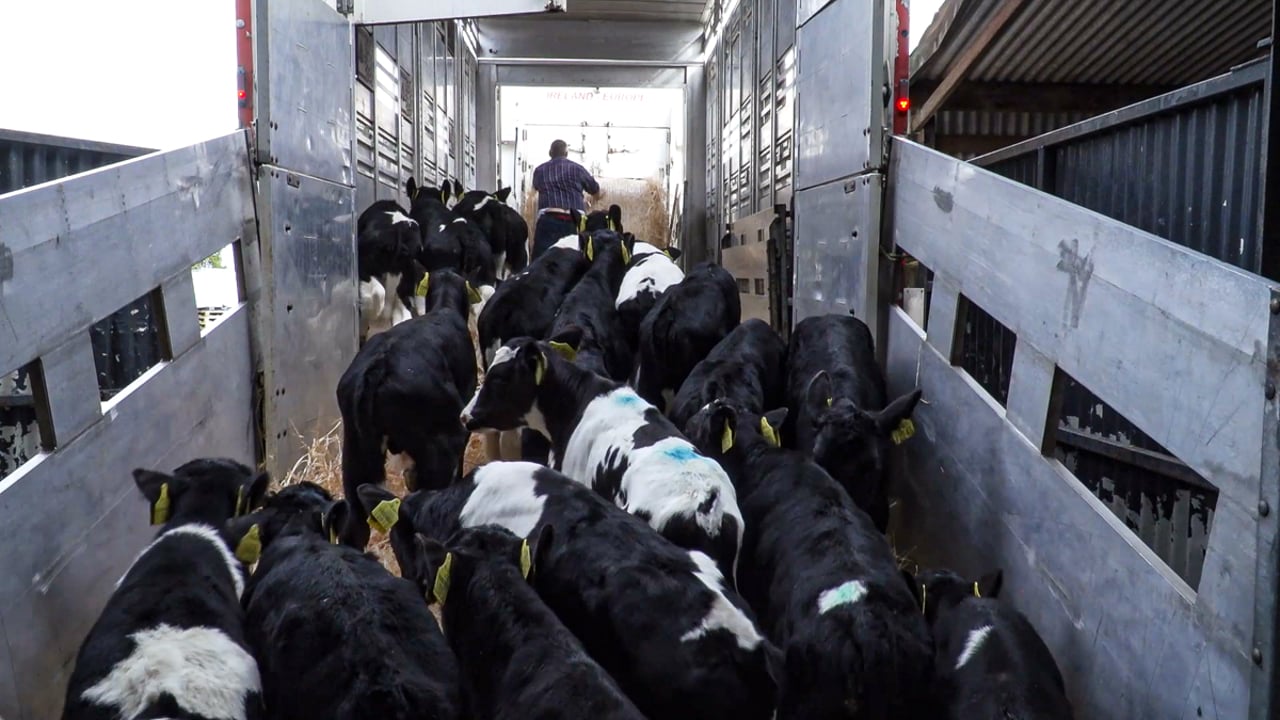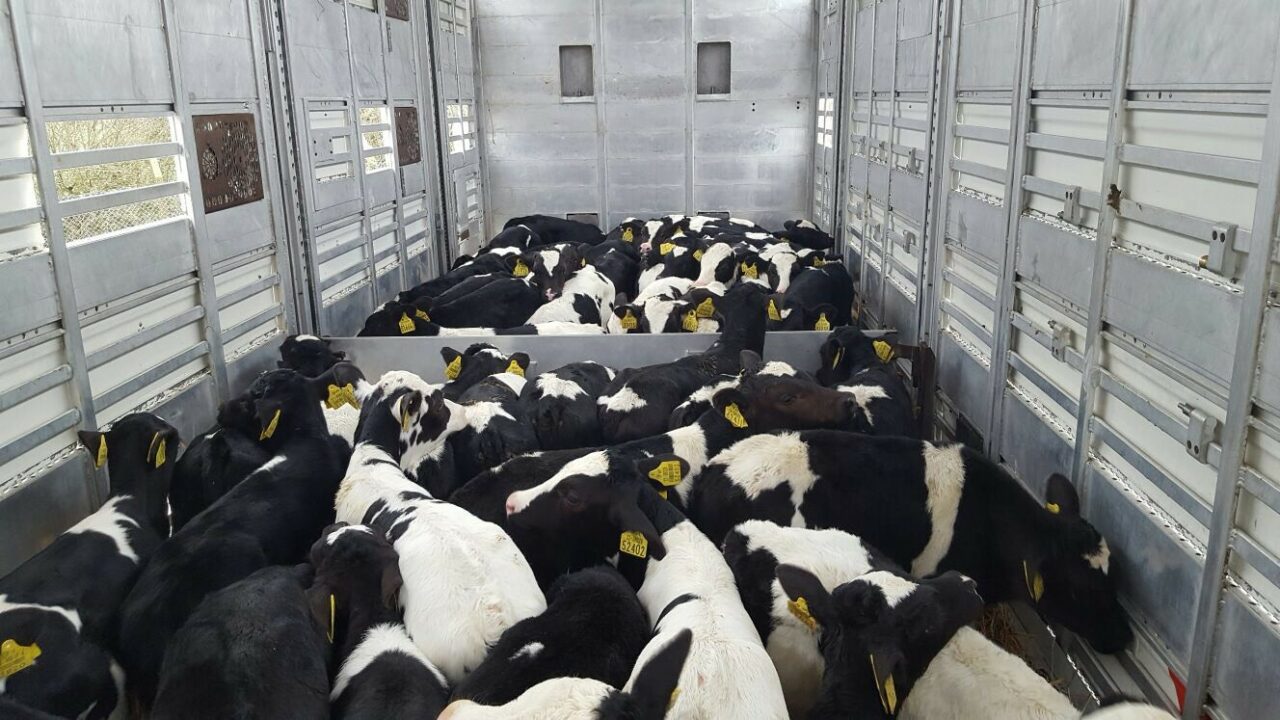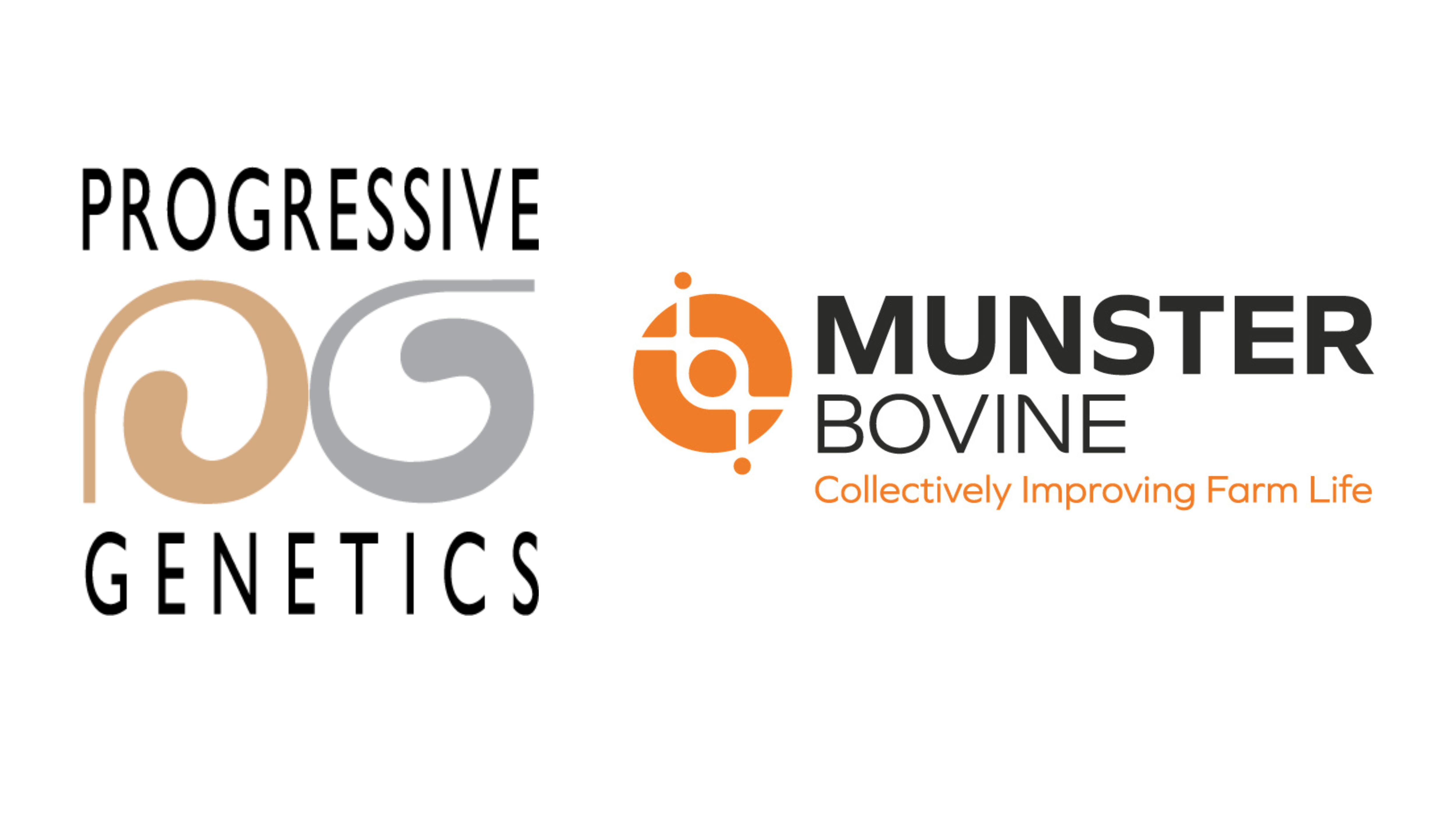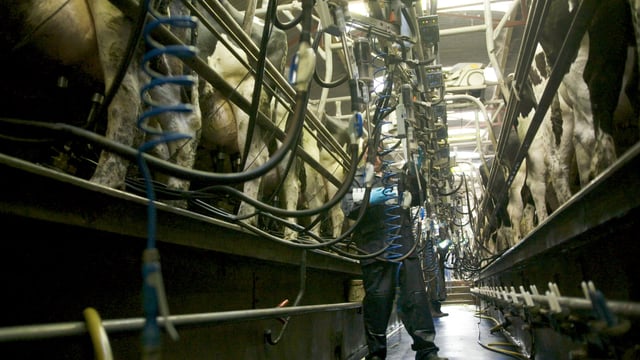EU proposes minimum age of five weeks for transport of unweaned calves
The European Commission has today (Thursday, December 7) proposed to implement legislation on the minimum age for unweaned calves to be transported.
These proposals would see a minimum age of five weeks and minimum weight 50kg for unweaned calves to be transported.
There will also be a journey of nine hours maximum for animals transported for slaughter under these proposals.
In what the Commission has called "the biggest reform of EU animal welfare rules during transport in 20 years", the proposals reflect "the latest scientific evidence...and technological developments".
The proposals will ensure that travel times will be shortened and during long journeys, animals must be unloaded for periods of rest, feeding and watering.
Special rules will apply to animals for slaughter, and to vulnerable animals such as unweaned calves and pregnant animals.
The proposals for animal transport are to:
- Further limit the maximum journey times for the transport of live animals (nine hours maximum for animals transported for slaughter; and for other animals: 21 hours (+ 24 hours rest) + 21 hours journey);
- Increase space allowance in the vehicle based on EFSA recommendations;
- Apply the maximum journey times also for exports of live animals from the EU and require further tools to guarantee that EU rules are met until destination, in line with the European Court of Justice ruling (e.g. animal welfare officer on board of vessels, vessels to fulfil good standards of maritime safety);
- Increase animal welfare requirements for the transport of vulnerable animals (e.g. for unweaned calves: max journey time of nine hours + one hour feeding + nine hours, if an effective feeding system is approved; Minimum age of five weeks and minimum weight 50kgs for unweaned calves to be transported);
- Revise rules to limit animal suffering due to transport at high temperatures (if weather forecast indicates 25°-30°C, only short journeys allowed during daytime; if it is higher than 30°C, only transport at night);
- Make the maximum of digital tools to facilitate the enforcement of transport rules (e.g. real-time positioning of vehicles; central database and digital application).
The legislative proposals will be submitted to the European Parliament and the Council.
On the European Citizens' Initiative, European Food Safety Authority (EFSA) will begin its scientific assessment on the basis of the Commission's request and deliver its scientific opinion by March 2025.
The EU proposals state that transport in extreme temperatures will be subject to strict conditions, including limiting transportation solely to night-time when temperatures exceed 30°C.
In addition, when temperatures are below 0°C, road vehicles shall be covered and air circulation in the animal compartment controlled, in order to protect animals from exposure to windchill during the journey.
If temperatures drop below -5°C, along with the previously mentioned measures, travel duration should not surpass nine hours.
Rules for the exports of live animals from the EU will be tightened, including better controls in third countries to meet equivalent standards as those found in the EU.
Allowances to ensure minimum space for the different animals will be increased and adapted to each species.
The EU will also untilise digital tools to facilitate the enforcement of transport rules (e.g. real-time positioning of vehicles; central database).
Maroš Šefčovič, executive vice-president for European Green deal, said: "More than 80% of EU citizens want better protection of animals.
"Today we are adopting a very important package of rules that ensure better animal welfare during transport. Travel times, travel space and travel temperatures will be adapted to improve their well-being."
Commissioner for Health and Food Safety, Stella Kyriakides said today the proposals are to "improve...welfare and prevent the mistreatment of animals during transport".
Transport companies will have to adapt to new transport patterns and potentially buy additional trucks due to higher space allowance.
In the case of sea transport, some will need to buy new or renovate their vessels in order to ensure compliance with standards of maritime safety.
In average at EU level, the cumulative impact of the proposals are estimated to result in an increase of production costs of €0.014/kg of meat, milk or eggs per year.
The impacts that this would have on production levels, import, export and consumer prices are expected to be negligible (below 1% in most cases), and no significant impact is expected on food security either.
It is estimated by the EU that gains and savings will be obtained thanks to higher meat quality, less carcass rejection and lower use of veterinary medicines through the proposals.






